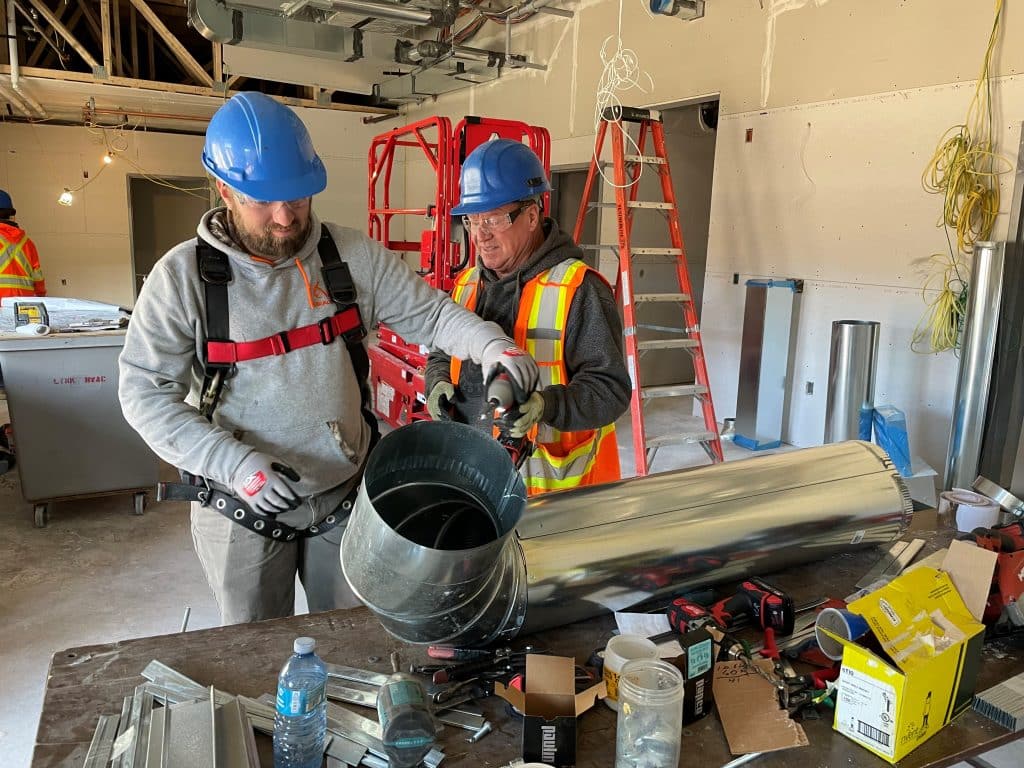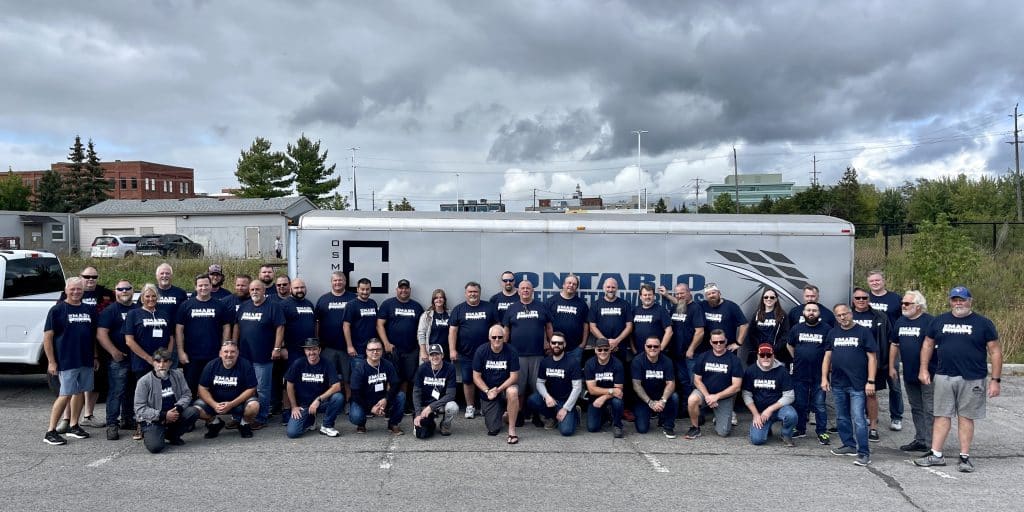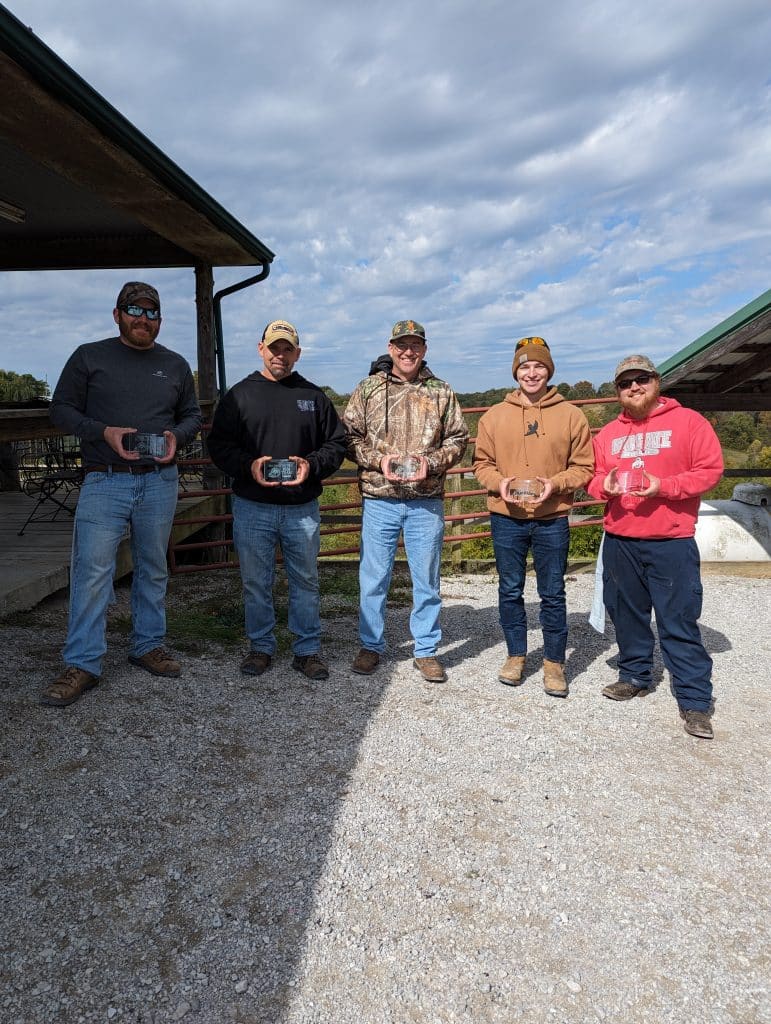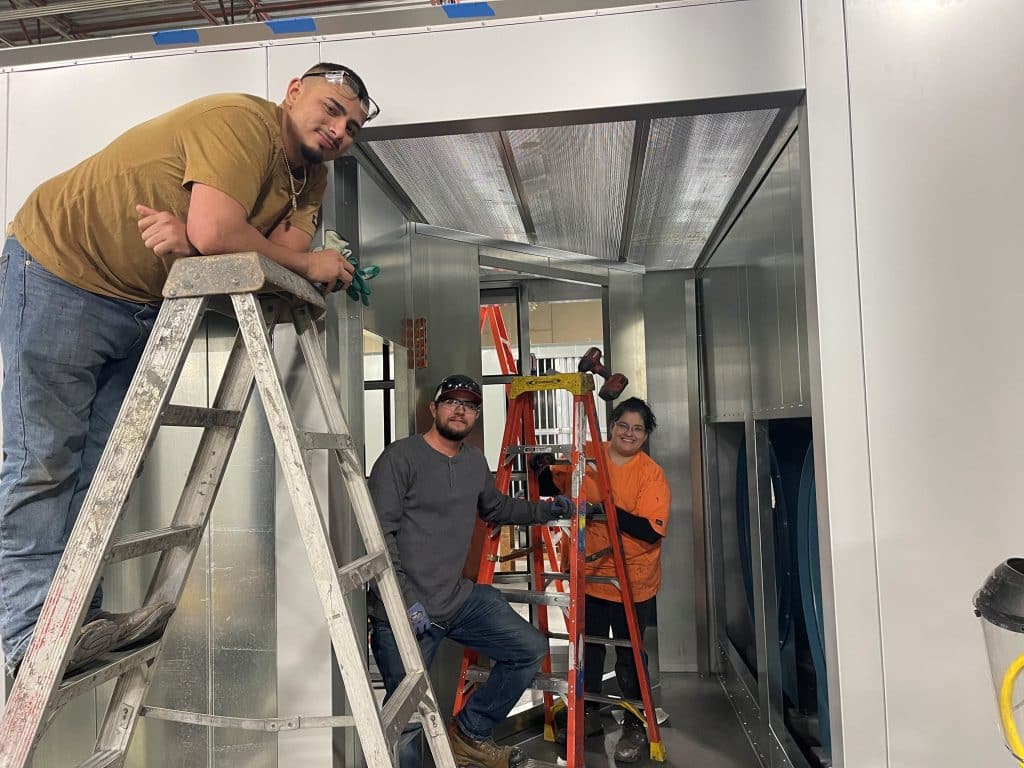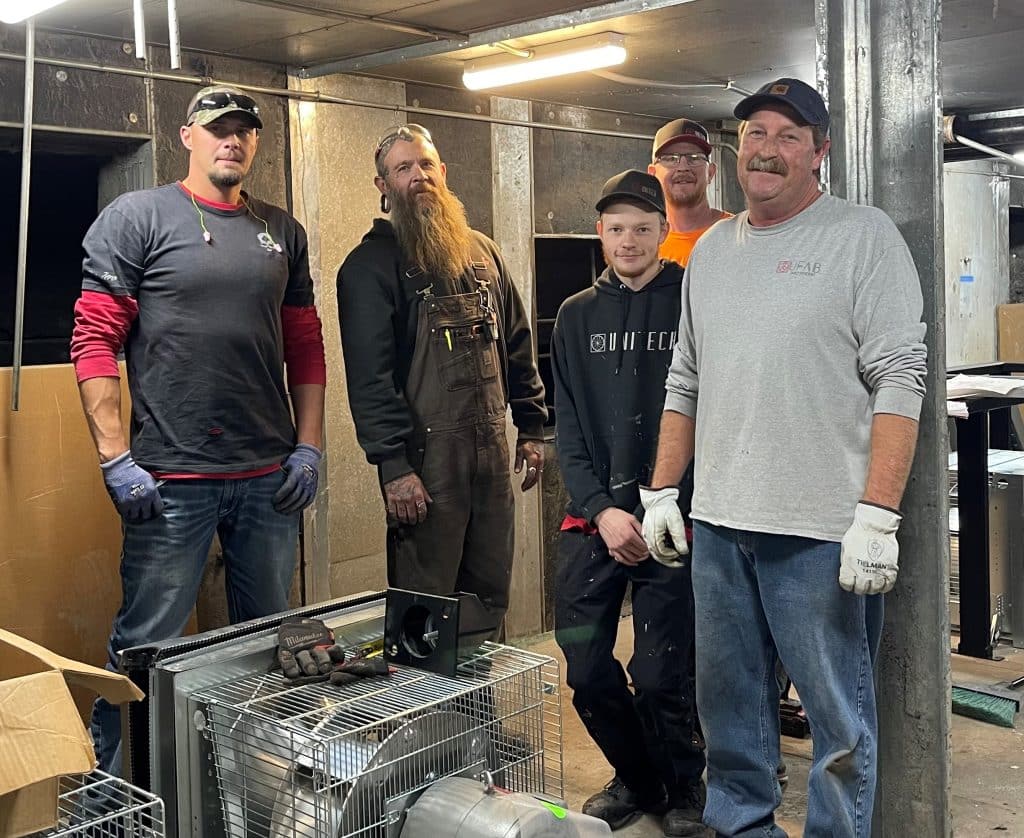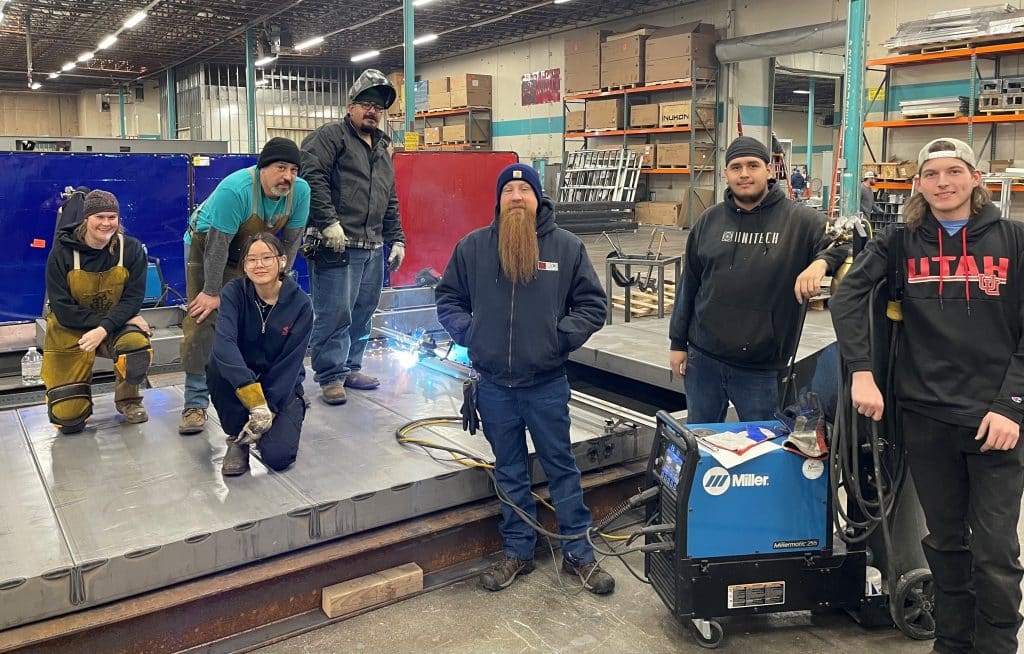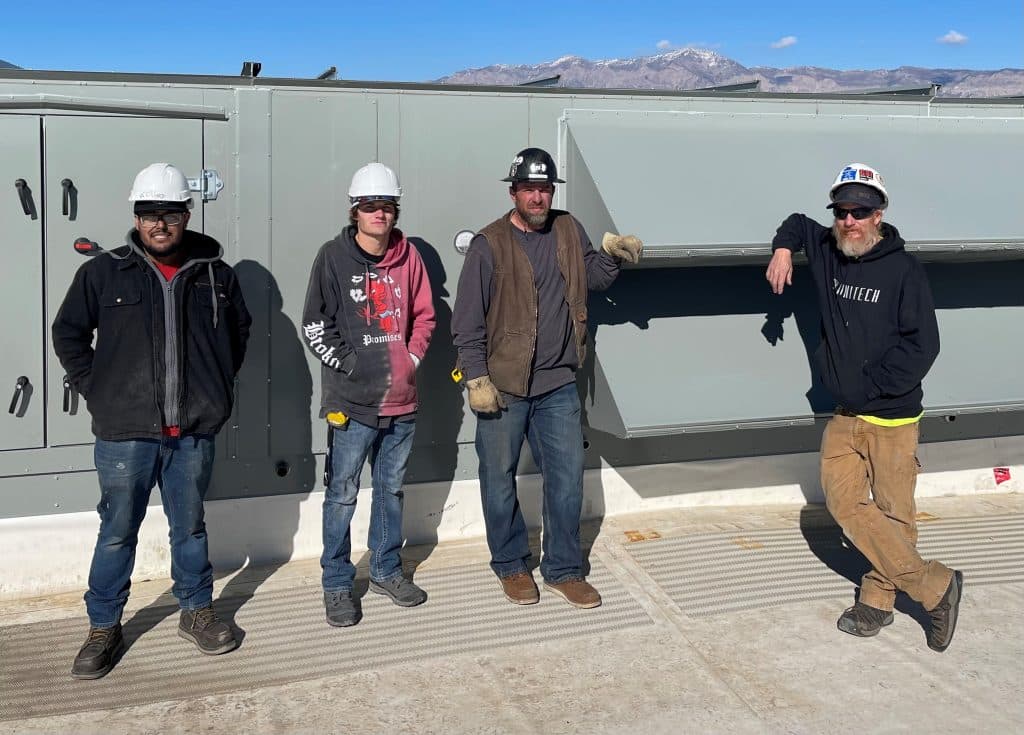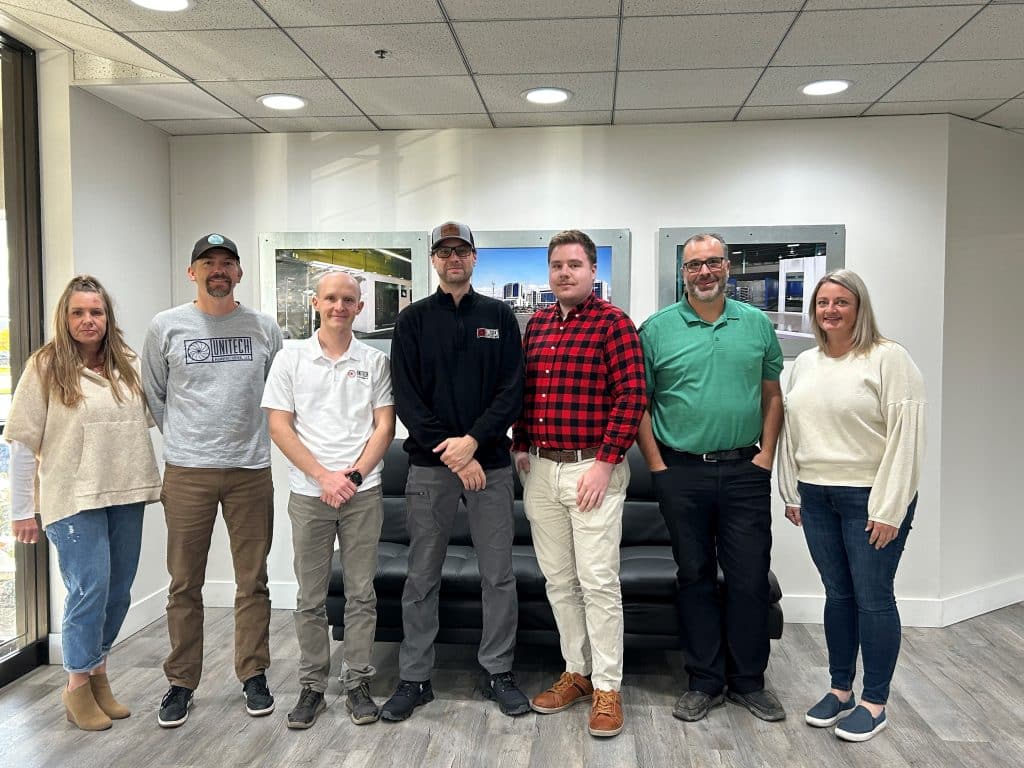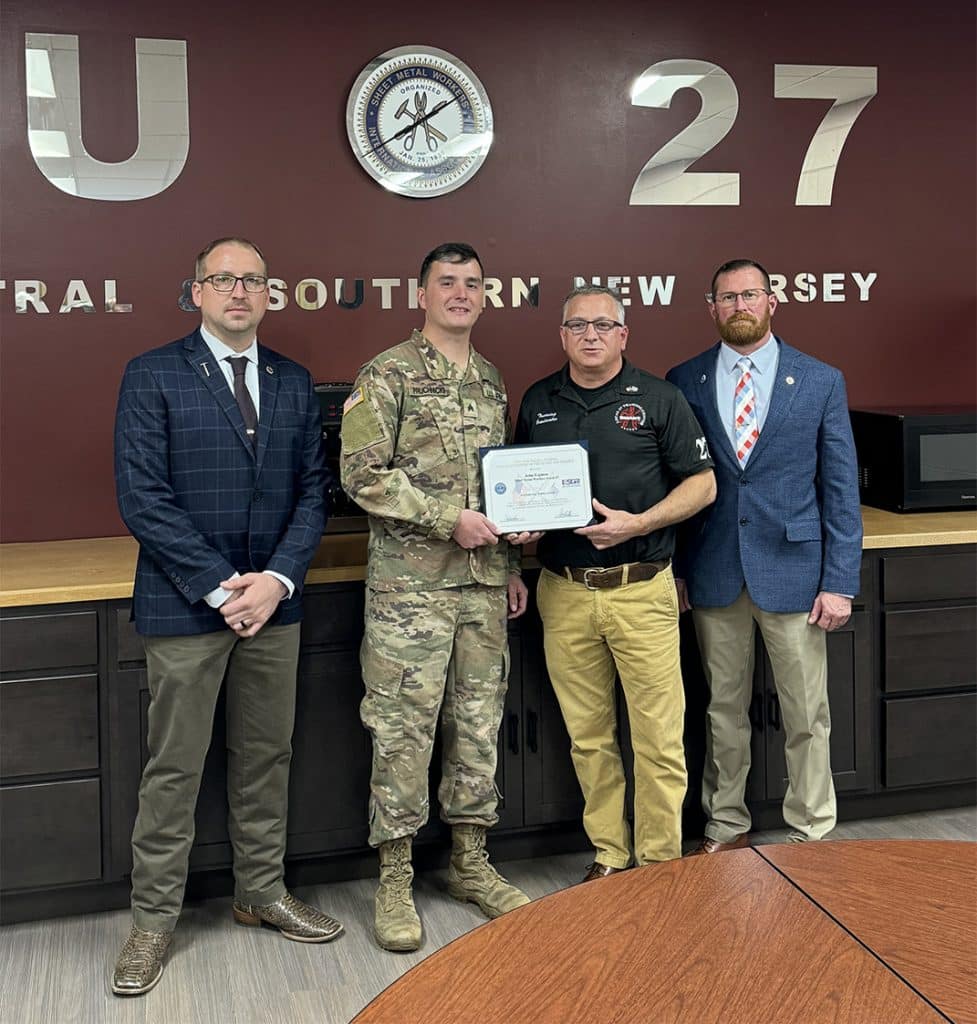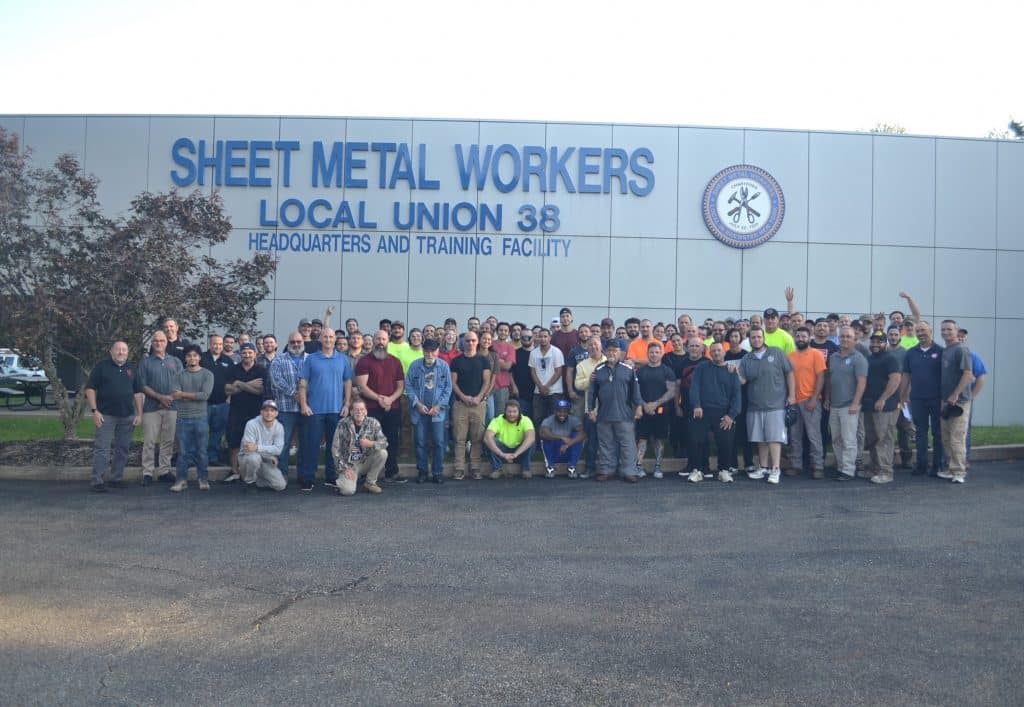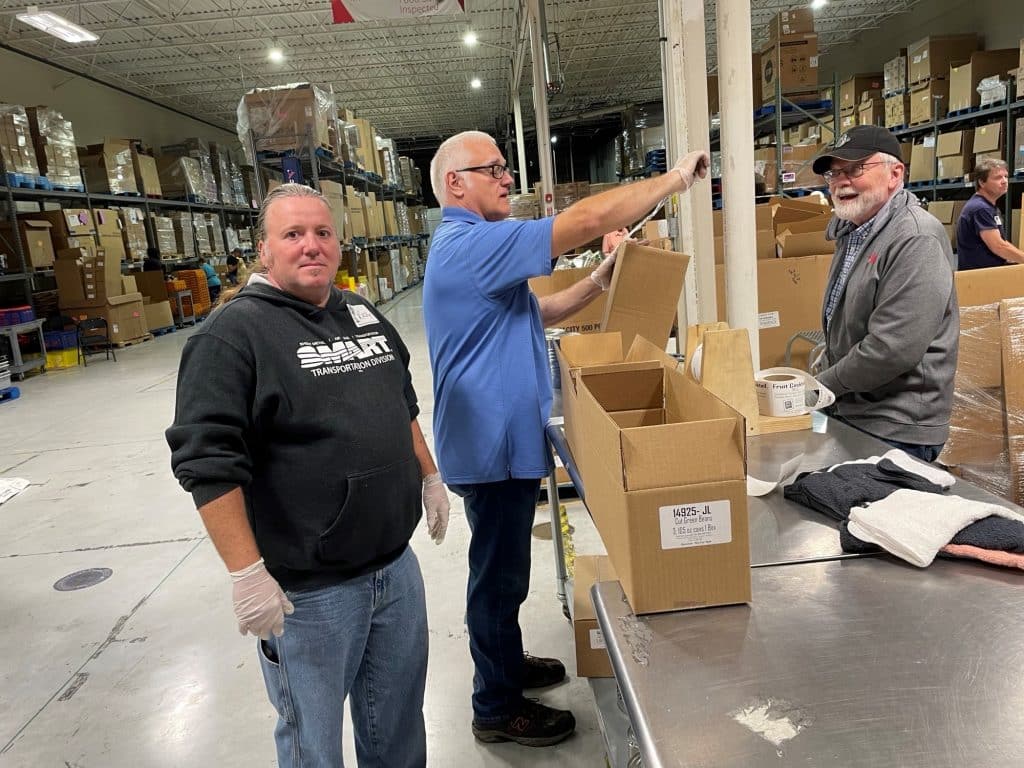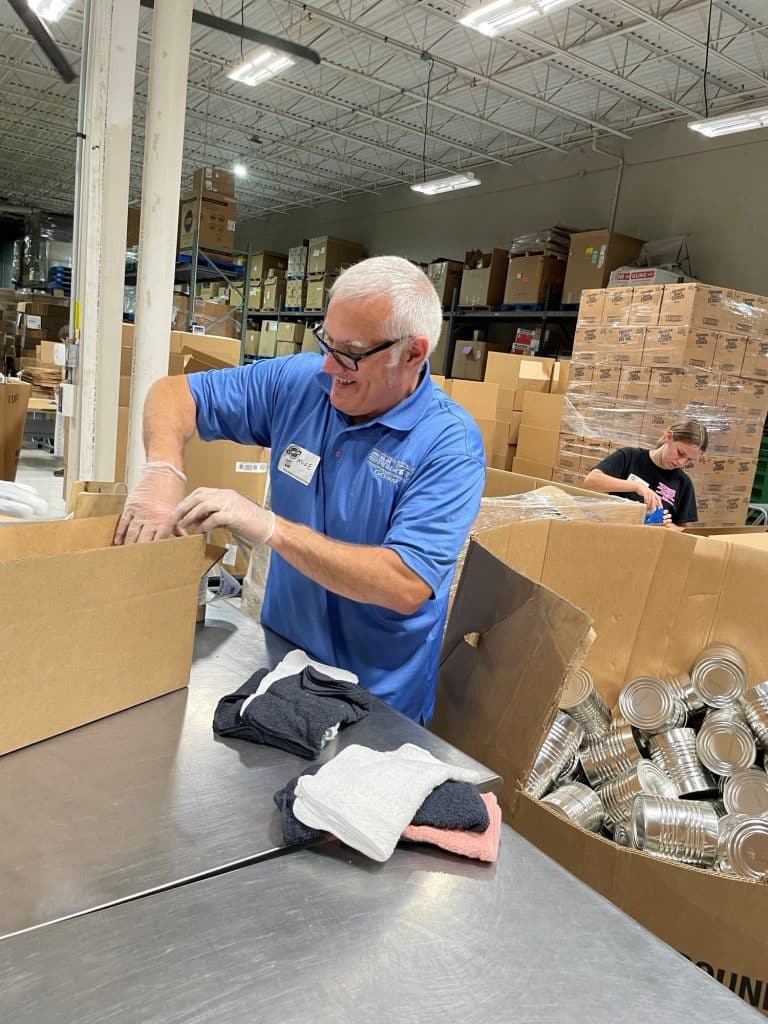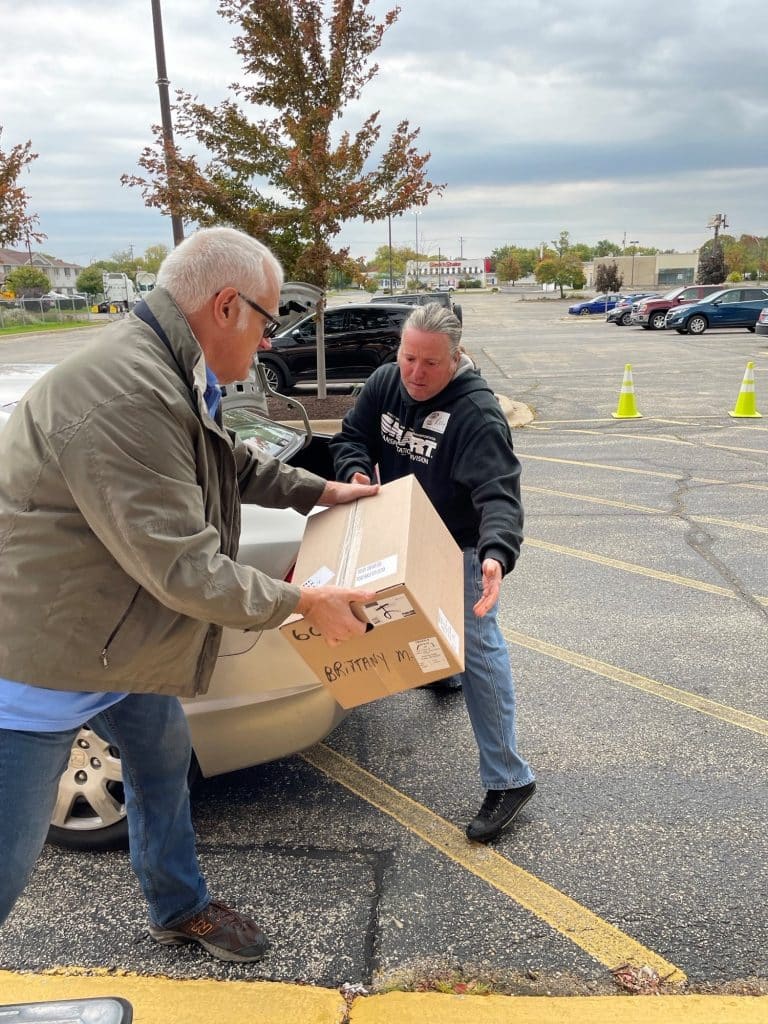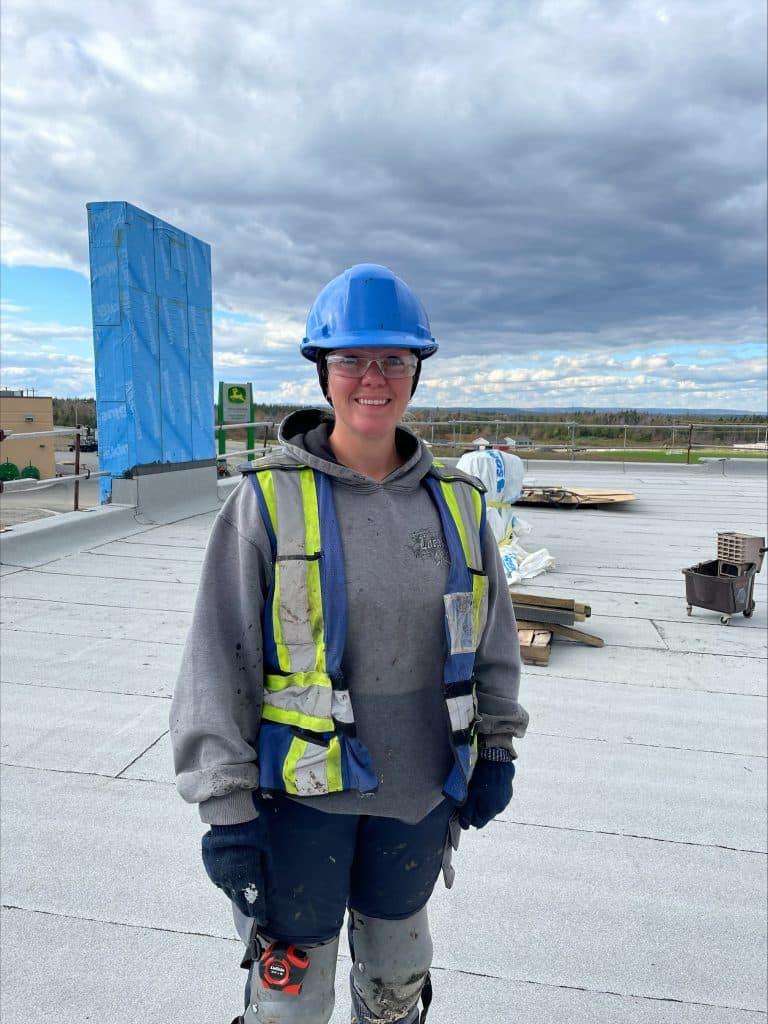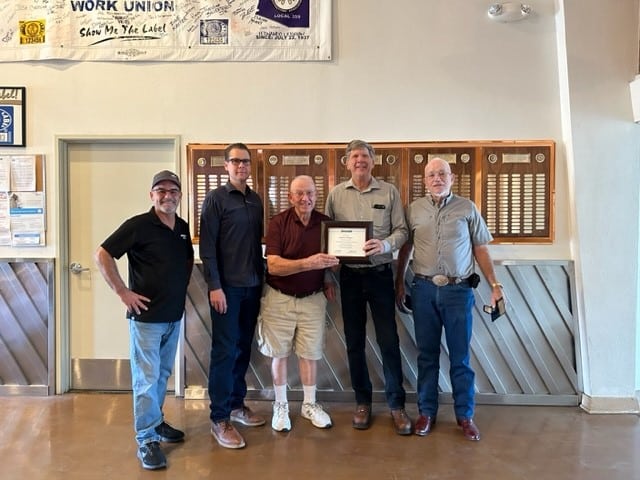Following a chance social media interaction, SMART Local 46 (Rochester, N.Y.) apprentices are helping provide the gift of mobility to hundreds of children across the world, according to WNYLaborToday.com — showcasing both the values and the craftsmanship of union labor.
Bellas Bumpas Limited is a 501(c) (3) nonprofit organization run by husband-and-wife team Marty Parzynski and Rebecca Orr that provides free, hand-crafted mobile chairs for children with physical disabilities. The charity’s mission, WNYLaborToday reports, is to not only help children gain “the mobility that has eluded them, but provide them with the opportunity to take part in a variety of activities that many children and their families take for granted.”
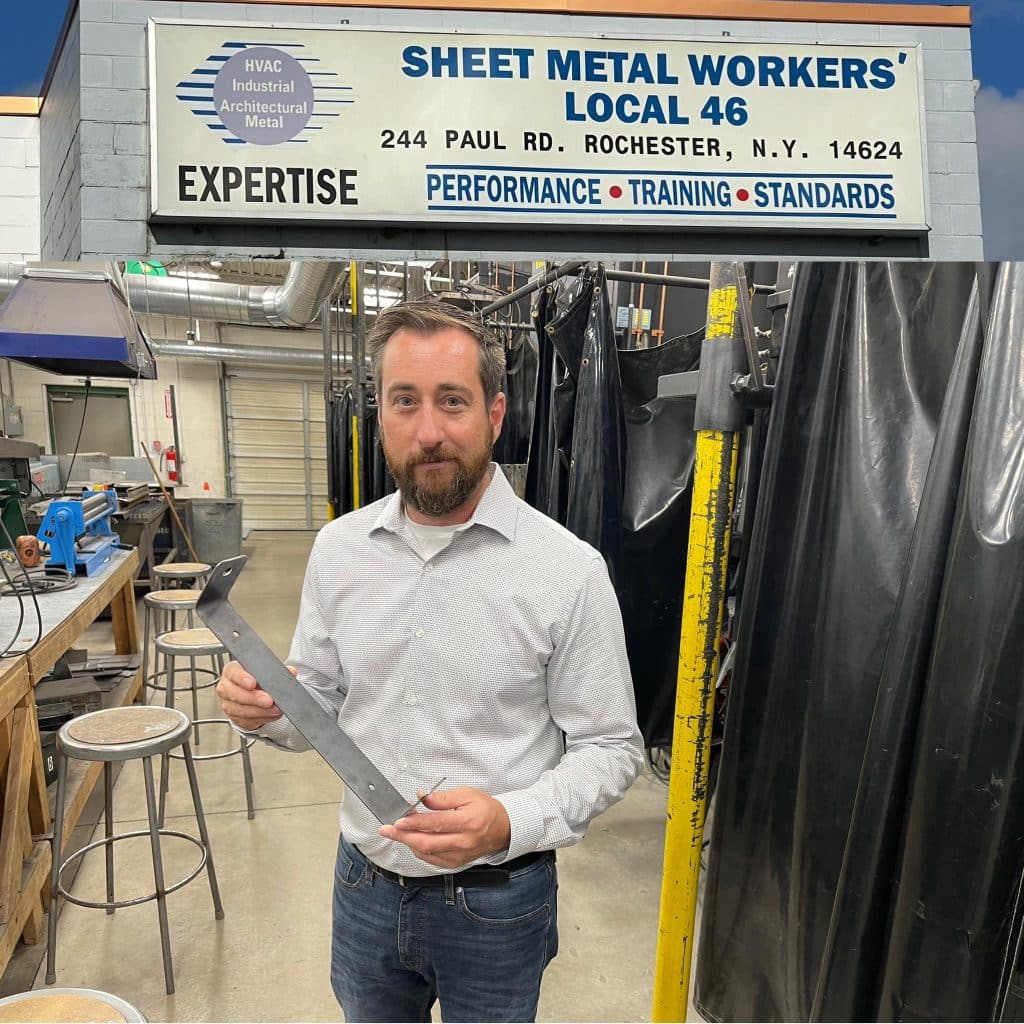
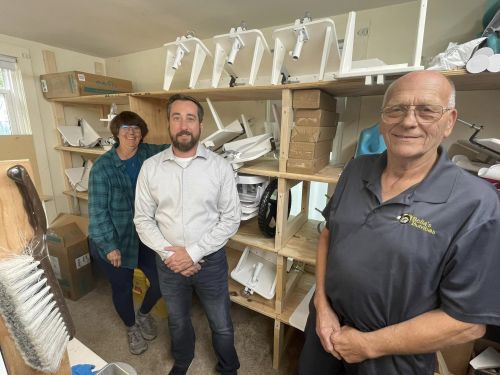
A crucial part of the wheelchairs, Local 46 Training Director Allen Mort told WNYLaborToday, is a metal axle that needs to be cut precisely to length, with holes drilled on either end to attach the wheels to each side of the chair. That’s where the union sheet metal apprentices entered the equation.
“[The charity] was looking for help with constructing wheelchairs and they needed metal pieces [to attach the wheels]. I called them to inquire about what they needed,” Mort — who originally saw Bellas Bumpas’ call for assistance on a neighborhood app — told WNYLaborToday.
“Their apprentices’ help takes a lot off my shoulders,” Parzynski said in the same article. “It gives me more time to work on other parts.”
“[Local 46’s apprentices] are helping disabled kids,” he continued. “Families who have a disabled kid have tears in their eyes, because they’ve never gotten anything like this. There was nowhere else to go [to get the metal axle made], and we couldn’t do anything without them. Then [Local 46] stepped in. It’s an absolute godsend.”
In addition to its donation of union labor, Local 46 helped spearhead a wave of financial assistance. Following the apprentices’ work, the Rochester Building & Construction Trades Council donated $16,000 to Bellas Bumpas, and Local 46 contributed another $1,000.
“When [the apprentices] learn that it’s so meaningful, you can see it in their faces,” Local 46 Business Manager Troy Milne explained to WNYLaborToday. “They take a bit of extra time because they know where it’s going. … They care.”
“I’m proud of them, as well as our entire membership, to give back to our community. We’re not just tin-knockers,” he added.
